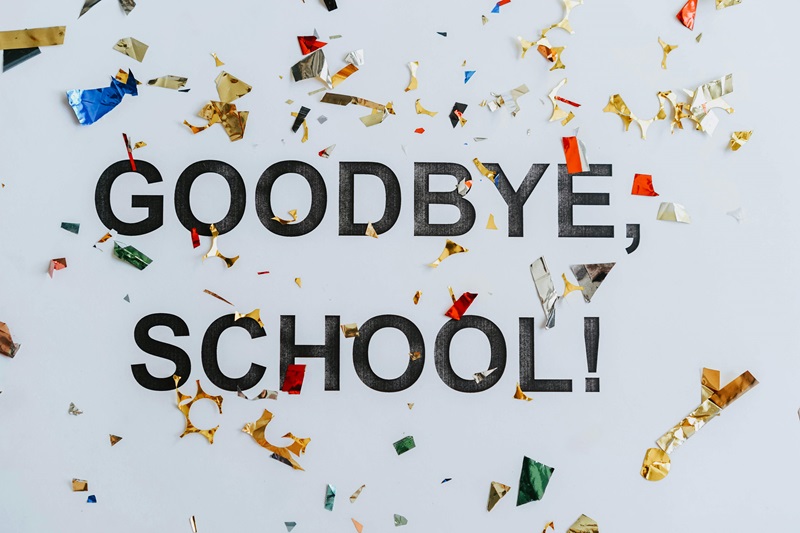Spending the School Holidays Productively

School holidays are just around the corner, and for many parents and students, it's a time filled with both excitement and the potential for some structured rest. While holidays offer a well-deserved break from academics, they also present a unique opportunity for students to explore new activities, learn useful skills, and find ways to stay engaged. With some planning, students can strike a balance between relaxation and productivity, ensuring they return to school feeling refreshed and enriched.
- Cultivate New Hobbies and Interests:
School holidays are an ideal time to explore interests that often get sidelined during the busy academic year. Creative hobbies, such as painting, drawing, and music, provide a constructive outlet for relaxation and self-expression. They also encourage problem-solving and build fine motor skills. Whether it's through an online tutorial or a local workshop, students can dive into a new hobby or refine an existing one.
For students inclined towards STEM, holidays offer a chance to engage in science experiments, build models, or learn programming. Online platforms like Scratch and Code.org offer introductory courses that make coding approachable for beginners, fostering analytical thinking and patience - skills that will serve them well in school and beyond.
- Learn Life Skills:
The holidays also provide an opportunity for students to learn practical life skills that can serve them throughout their lives. Cooking and baking, for instance, are both enjoyable and educational. In addition to learning how to follow recipes and measure ingredients, cooking teaches patience, planning, and creativity. Parents can encourage students to explore simple recipes or even cook a meal for the family, turning cooking time into quality time.
Another valuable life skill is managing finances. For older students, parents might consider introducing them to budgeting. Learning to allocate spending and save money teaches responsibility and can set up good habits for adulthood. Simple budgeting exercises can include managing a small allowance or planning for a specific purchase, helping them understand the value of money.
- Stay Physically Active:
Physical activity plays a crucial role in mental well-being, especially during a break from school routines. Engaging in outdoor activities, whether it's hiking, cycling, swimming, or even taking regular walks, can help students stay physically fit and boost their energy levels. If students enjoy sports, they can use this time to practice skills or join a sports camp, allowing them to stay active and socialise with peers who share similar interests.
For students who prefer indoor activities, home workout routines, yoga, or even dance classes can keep them engaged and active. Exercise reduces stress and promotes better sleep, which is especially beneficial during a restful holiday period.
- Volunteer and Engage with the Community
Volunteering during school holidays is an enriching way to foster empathy, responsibility, and a sense of community. Many organisations welcome young volunteers, from animal shelters to community centres. Volunteering helps students gain new perspectives, develop communication skills, and build a deeper sense of purpose.
- Explore Career Interests:
For older students, holidays are a prime opportunity to explore career interests through job shadowing or short internships. Explore summer or holiday programmes that introduce young learners to various professions, helping them gain insights into potential career paths. Even online career workshops can hold valuable information.
Career exploration isn't limited to formal settings. Simply researching professions, connecting with professionals through family or community networks, and asking questions can give students a sense of the skills required in different fields and help them make more informed choices about future studies.
- Declutter and Organise:
A well-organised environment can make a big difference to a student's focus and motivation. During the holidays, students can take time to clean and declutter their study areas, bedrooms, and even digital spaces. Organising school materials, clearing out old notes, or sorting through digital files can reduce distractions and help them start the next term with a fresh, uncluttered space.
For younger students, decluttering can be a fun project, especially if parents turn it into a game or challenge. Older students might appreciate the sense of accomplishment that comes with a tidy, organised environment that supports productivity.
- Spend Quality Time with Family and Friends:
Above all, holidays are a time for relaxation and connection. Spending time with family and friends can be a great way to recharge emotionally and build memories. Whether it's through family meals, game nights, day trips, or simply spending time together, fostering social connections enhances emotional well-being. These connections are crucial for mental health and offer a break from structured activities, providing the balance students need to feel refreshed and motivated for the new term.
The school holidays are a wonderful opportunity for students to relax, recharge, and discover new interests. A balanced approach, combining rest with productive activities, can help students return to school with renewed energy and enthusiasm. By encouraging students to try new things, build life skills, and pursue activities that support both personal and academic growth, parents can help them make the most of their break and set them up for success in the next term.
Related to: For Parents For Students General Info


